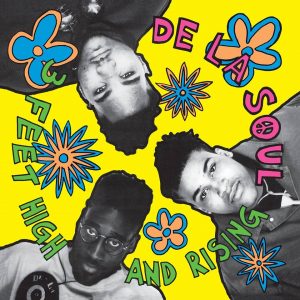By Adam Payne-Reichert
When Spotify first came out, I saw it as a godsend. I could stream almost any music I wanted on demand, download music to my phone for later use, easily create and share playlists and so much more. Since then, the app’s developers have continued to add original features, and its value has consistently increased.
However, when I read Pitchfork’s article “How to be a Responsible Music Fan in the Age of Streaming,” I felt myself fall a little out of love. The article demonstrated several real and potential dangers inherent in Spotify and music streaming services, including the lack of diverse musical offerings and the abysmal pay-out rates that these services offer to artists.
Fortunately, the article also highlighted what we can do to ensure that the industry survives and thrives. One such action would be supporting platforms artists via non-Spotify platforms.
With this end in mind, I’ll offer five album recommendations that you can’t find on Spotify or any other streaming service that I’m aware of. In doing so, I’ll be getting as close as I reasonably can to forcing you to support these (and hopefully other) artists through alternative means.
King Crimson: In the Court of the Crimson King
Here’s a prog rock album that, unlike many of its counterparts, doesn’t feel bloated and excessive. The opening track of “21st Century Schizoid Man,” bursts onto the scene with a fiery intensity that the group is somehow able to maintain up throughout the seven-minute-long jam. The album then performs its first of many dramatic shifts, transitioning into the soft, pastoral ballad “I Talk to the Wind.” The rest of the album is characterized by similar shifts, going, for instance, from the playful, extended improvisation that closes out “Moonchild” to the thundering closer that is “The Court of the Crimson King.” If none of these qualities appeal to you, the album may be worth checking out for another reason; any Kanye fans out there should recognize the debt he owes to “21st Century Schizoid Man” for forming the basis of his hit single, “Power.”
Death Grips: Exmilitary
This album is absolutely brutal, and, in that way, it’s like most other Death Grips releases. However, this mixtape, the group’s first release, deserves special attention for a couple of reasons. First, the band is at its most lo-fi here, so anyone who loved the quality of The Money Store’s sound should feel similarly about this one. Second, the band is exploring, lyrically and instrumentally, many of the themes it plunges further into on later releases; consequently, later releases may be a bit easier to “get” if new listeners explore this album first. Third, this album is made by Death Grips, and I’m a firm believer that that’s reason enough to check anything out.
Joey Bada$$: 1999
One (and probably only one) comparison can be drawn to the Prince album of the same name: both albums were produced by black artists arguably at their creative peak. Here, Joey Bada$$ nimbly flows through 15 highly varied tracks and sounds like he’s barely trying the entire time. Bada$$ assembled an all-star team of producers for this album, including the likes of MF DOOM, Statik Selektah and J Dilla, Bada$$’s skillful flow and lyricism proves that he deserves to be surrounded by these greats. There’s really no wrong spot to start with this album, but my suggestion would be to initiate yourself with the laidback jazziness of “Snakes.”
Captain Beefheart and His Magic Band: Trout Mask Replica
Fellow Death Grips fans may be surprised to hear me claim that this album is, by far, the most out-there work included on this list. On this album, we can hear the result of Captain Beefheart energetically giving the middle finger to pretty much every rule that guides the creation of other albums and even music in general. The opening track thrusts the listener into Beefheart’s strange musical world, filled with instruments playing entirely different rhythms in entirely different keys. Though I admit the album might be a bit tough to get through, one has to admire the musicianship and creativity that went into producing this singular masterpiece.
De La Soul: Three Feet High and Rising
Similarly creative and rule-breaking to Captain Beefheart and His Magic Band, though in an entirely different fashion, De La Soul’s Three Feet High and Rising is a powerful testament to the freeing, subtly subversive qualities of positive rap. It’s also a strong counterexample to any claims that the sampling process lacks ingenuity; in the beginning track, a Led Zeppelin drum track, a Johnny Cash sample and at least three other songs are repurposed to form a surprisingly cohesive whole. But most importantly, given the much awaited warm weather, this is one that is perfect for summer.





































































































































































































